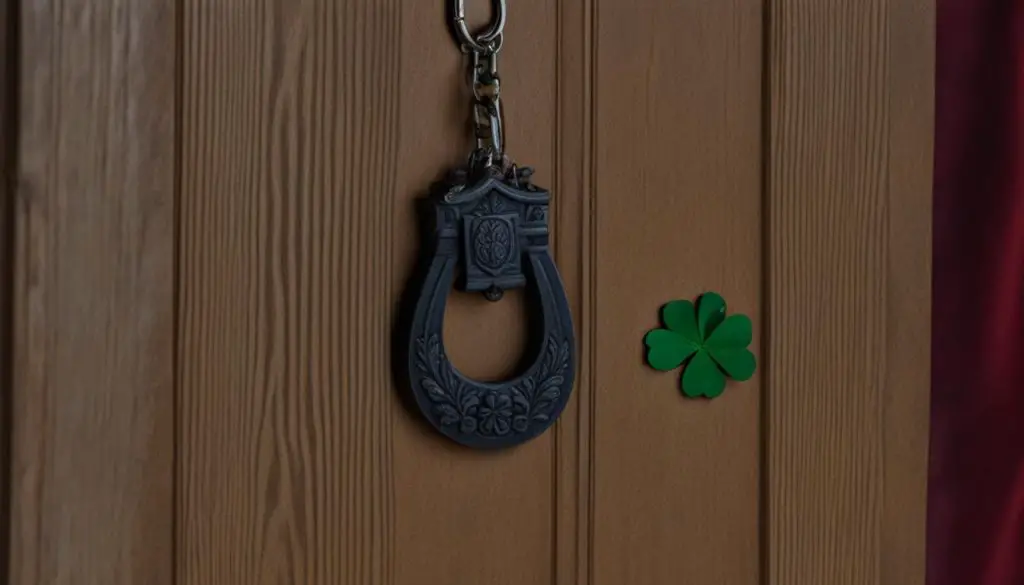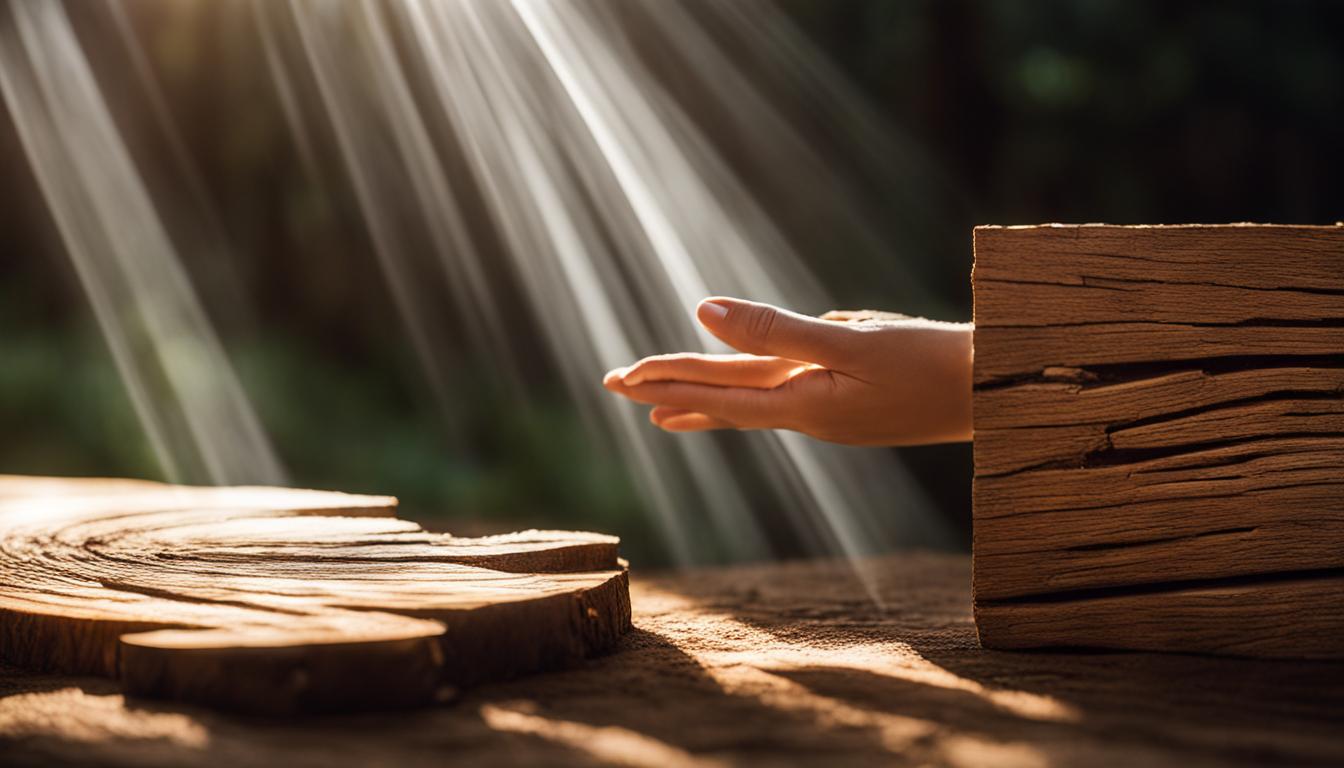In various cultures around the world, knocking on wood is a common superstition believed to bring good luck and ward off bad omens. But have you ever wondered how many times you should knock on wood to ensure that your good fortune remains intact? In this article, we will delve into the origins of this tradition and explore the different cultural beliefs associated with wood knocking.
Contents [hide]
- 1 The Folklore Behind Knocking on Wood
- 2 Superstitions for Good Luck Around the World
- 3 Ukrainian Superstitions and Beliefs
- 4 Superstitions Related to Home and Travel
- 5 FAQ
- 5.1 What is the origin of knocking on wood?
- 5.2 Why do people knock on wood?
- 5.3 Are there similar traditions in other countries?
- 5.4 What are some superstitions related to good luck in other countries?
- 5.5 What are some Ukrainian superstitions and beliefs?
- 5.6 Are there specific superstitions related to home and travel in Ukraine?
- 6 Source Links
Key Takeaways
- The practice of knocking on wood originated from ancient Celtic and Christian beliefs and folklore games.
- Knocking on wood is believed to beckon spirits, protect against evil, and prevent bad luck.
- Superstitions for good luck can be found in countries across the globe, with variations in the number of knocks and accompanying phrases.
- In Ukraine, there are unique superstitions related to avoiding bad luck, such as not passing anything across the doorstep or giving a watch as a gift.
- Ukrainian superstitions also extend to home and travel, with beliefs about home spirits and the importance of fulfilling travel plans.
The Folklore Behind Knocking on Wood
The practice of knocking on wood is steeped in folklore and cultural beliefs. It has been passed down through generations as a way to ward off bad luck and protect oneself from the forces of evil. The origins of this tradition are varied and can be traced back to different cultures and beliefs.
Origins and Legends
One theory suggests that knocking on wood originated from ancient Celtic beliefs. The Celtic people believed that trees were inhabited by spirits or gods, and by knocking on wood, they could call upon these entities for protection and good fortune. Another theory links the practice to Christianity, where it is associated with the wood of the cross of crucifixion.
There is also speculation that the tradition of knocking on wood may have emerged from a folk game called “Tiggy Touchwood” or from wooden sailors’ heads on old English Sailing Boats. Regardless of its exact origins, knocking on wood has become a widespread tradition found in various forms in different countries.
The Power of Wood
In many cultures, wood is regarded as a sacred material with protective properties. Knocking on wood is believed to awaken and activate these energies, creating a barrier against negative influences. It is seen as a way to counteract any negative thoughts or actions that may inadvertently invite bad luck or misfortune.
“Knocking on wood is like summoning the spirits of the trees to shield us from harm.”
A Universal Superstition
Knocking on wood is not exclusive to a particular culture or region. Similar traditions can be found around the world, each with its own unique variations and beliefs. From Bosnia and Herzegovina to Brazil, from Denmark to Egypt, people engage in the practice of knocking on wood to safeguard their good fortune and protect themselves from potential jinxes.
Superstitions and cultural beliefs play a significant role in shaping our actions and behaviors. Whether we believe in the power of knocking on wood or not, these traditions continue to be passed down, reminding us of the rich tapestry of beliefs and customs that shape our diverse world.
Table: Cultural Beliefs and Traditions Associated with Knocking on Wood
| Country | Belief or Tradition |
|---|---|
| Bosnia and Herzegovina, Brazil, Bulgaria, Denmark | Knocking on wood while making positive statements to avoid jinxing them. |
| Egypt, Georgia, Greece, Iran, Israel | Using wood knocking as a means of protection against evil spirits or forces. |
| Italy, Latin America, Lebanon, Romania, Spain, Sweden, Turkey | Knocking on wood to prevent bad luck or to counteract negative thoughts. |
Superstitions for Good Luck Around the World
Superstitions and rituals for attracting good luck are deeply rooted in cultures across the globe. From knocking on wood to lucky charms and affirmations, people have devised various practices to ward off bad luck and invite good fortune into their lives. Let’s explore some of the interesting superstitions observed in different countries.
Bosnia and Herzegovina, Croatia, Slovenia, Montenegro, and Serbia
In these countries, people follow the tradition of knocking on wood while saying something positive or affirmative. This act is believed to prevent jinxing the situation or tempting fate. It serves as a way to acknowledge the fragility of good luck and to protect it from potential harm.
Brazil and Portugal
In Brazil and Portugal, physically knocking on wood three times is done to prevent a bad thing from happening. This superstition reflects a belief in the power of physical touch with wood to avert negative outcomes and ensure good fortune.
Bulgaria
In Bulgaria, knocking on wood is associated with protection against evil forces. By knocking on wood, people believe they can create a shield of positive energy around themselves, preventing malevolent spirits from causing harm or bringing bad luck.
Denmark
In Denmark, people believe in the saying “7, 9, 13” for good luck. This means that if you encounter a situation where you can perform an action seven, nine, or thirteen times, it will bring positive outcomes and blessings. It is a unique and intriguing belief that highlights the importance of specific numbers in Danish culture.
Other Countries
Similar practices can be found in numerous other countries, including Egypt, Georgia, Greece, Indonesia, Iran, Israel, Italy, Latin America, Lebanon, Romania, Spain, Sweden, and Turkey. Each culture has its own set of superstitions and rituals aimed at attracting good luck and avoiding misfortune.
These superstitions and rituals not only showcase the fascinating diversity of cultural beliefs but also reflect humanity’s enduring desire for positive outcomes and protection against adversity. Whether it’s knocking on wood, reciting affirmations, or carrying lucky charms, these practices provide comfort and hope in the face of uncertainty.

| Country | Superstition |
|---|---|
| Bosnia and Herzegovina, Croatia, Slovenia, Montenegro, and Serbia | Knocking on wood while saying something positive or affirmative |
| Brazil and Portugal | Physically knocking on wood three times |
| Bulgaria | Knocking on wood for protection against evil |
| Denmark | Saying “7, 9, 13” for luck |
| Egypt, Georgia, Greece, Indonesia, Iran, Israel, Italy, Latin America, Lebanon, Romania, Spain, Sweden, Turkey | Various superstitions and rituals for good luck |
Ukrainian Superstitions and Beliefs
Ukraine is a country rich in superstitions and cultural beliefs that have been passed down through generations. These beliefs shape the way Ukrainians interact with their environment and influence their daily lives. Understanding these superstitions can provide valuable insights into Ukrainian culture and traditions. Here are some notable Ukrainian superstitions and beliefs that revolve around avoiding bad luck.
The Spirits of Ancestors
In Ukraine, it is believed that the doorstep of a house is a sacred place where the spirits of ancestors are buried. As a result, it is considered disrespectful to pass anything across the doorstep. This act is believed to disturb the spirits and invite bad luck into the household. Ukrainians hold onto this superstition and avoid passing items or even stepping over the doorstep unnecessarily.
Avoiding the Number 40
The number 40 is associated with death in Ukrainian culture, and as a result, Ukrainians do not celebrate their 40th anniversary. It is believed that reaching this milestone carries the risk of inviting misfortune and bad luck. This superstition is deeply ingrained in the culture and often influences the way Ukrainians approach important life events.
Table: Ukrainian Superstitions
| Superstition | Belief |
|---|---|
| Do not give a watch as a gift | Invites death |
| Do not celebrate the 40th anniversary | Associated with death |
| Do not eat from a knife | Provokes anger |
| Do not spill salt | Leads to quarrels |
| Do not take out the garbage after sunset | Brings bad luck |
While these superstitions may seem unusual to outsiders, they hold great significance in Ukrainian society. Ukrainians value their traditions and continue to follow these beliefs to maintain harmony and avoid any potential misfortune.
Superstitions Related to Home and Travel
Ukrainian culture is rich in superstitions and beliefs that extend beyond individual actions and influence beliefs about home and travel. Cultural beliefs about home spirits play a significant role in Ukrainian superstitions. It is believed that these spirits can cling to people and hinder their journeys. To confuse the spirits, Ukrainians have a superstition that you should not sit down before a trip, as it makes the spirits think that no one is going anywhere. So, it’s best to stay on your feet and keep the spirits at bay.
Another superstition related to travel in Ukraine is the belief that if you return home without fulfilling your plans, you will lose your luck. Crossing the threshold when returning home is seen as turning away from your goal, and to counteract this, one can look in the mirror to regain their initial energy and ensure their luck remains intact.
It’s not just travel that is influenced by superstitions in Ukraine; even actions within the home have cultural beliefs associated with them. For example, Ukrainians believe that passing anything across the doorstep disturbs the spirits of the ancestors buried under the doorstep, so it’s best to avoid doing so. Giving a watch as a gift is also considered inappropriate, as it is believed to invite death. Furthermore, eating from a knife is seen as a way to make a person angry, and spilling salt is said to lead to quarrels. Taking out the garbage after sunset is also considered to be unlucky in Ukrainian culture.
FAQ
What is the origin of knocking on wood?
Knocking on wood is believed to have originated from ancient Celtic and Christian beliefs, as well as folklore games. It was associated with calling on spirits or gods of the trees by the Celtic people and with the wood of the cross of crucifixion by Christians. Another theory suggests it may have come from a folk game called “Tiggy Touchwood” or from wooden sailors’ heads on old English Sailing Boats.
Why do people knock on wood?
People knock on wood to avoid “tempting fate” after making a favorable prediction or boast. It is believed to bring protection against evil or prevent bad luck.
Are there similar traditions in other countries?
Yes, similar traditions can be found in various countries including Bosnia and Herzegovina, Brazil, Bulgaria, Denmark, Egypt, England, Georgia, Greece, Iran, Israel, Italy, Latin America, Lebanon, North Macedonia, Norway, Poland, Romania, Spain, Sweden, Turkey, the United States, and Vietnam.
In Bosnia and Herzegovina, Croatia, Slovenia, Montenegro, and Serbia, people knock on wood while saying something positive to avoid jinxing it. In Brazil and Portugal, physically knocking on wood three times is done to prevent bad things from happening. In Bulgaria, the superstition is reserved for protection against evil. In Denmark, the saying “7, 9, 13” is used for luck. Similar practices can be found in countries like Egypt, Georgia, Greece, Indonesia, Iran, Israel, Italy, Latin America, Lebanon, Romania, Spain, Sweden, and Turkey.
What are some Ukrainian superstitions and beliefs?
Ukrainians believe that passing anything across the doorstep disturbs the spirits of the ancestors buried under the doorstep. Giving a watch as a gift is also considered inappropriate as it is believed to invite death. Ukrainians do not celebrate the 40th anniversary, as the number 40 is associated with death. Additionally, eating from a knife is believed to make a person angry, and spilling salt is said to lead to quarrels.
Yes, Ukrainians believe that home spirits can hinder their journey if they cling to people. Sitting down before a trip confuses the spirits, making them think that no one is going anywhere. There is also a superstition that if you return home without fulfilling your plans, you will lose your luck. Moreover, it is believed that crossing the threshold when returning home signifies turning away from the goal. To counteract this, one can look in the mirror to regain their initial energy.





